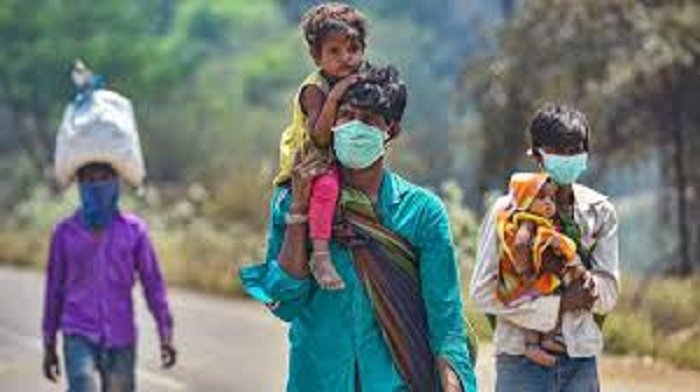A recent Oxfam report has found that existing disparities in India, and around the world have been profoundly aggravated by the Covid pandemic.
The report, titled ‘The Inequality Virus‘, found that the wealthiest billionaires in India increased their wealth by 35 per cent as the pandemic stalled the economy, pushing millions of poor Indians out of jobs.
“During the lockdown, wealth of Indian billionaires increased by 35% and by 90% since 2009 to $422.9 billion, ranking India sixth in the world after the US, China, Germany, Russia and France,” the report states.
According to Oxfam’s calculations, India’s top 100 billionaires saw their fortunes grow by Rs 12.97 trillion since March, as the government declared probably the strictest lockdown anywhere in the world, enough money to give each of the 138 million poorest Indians a check for Rs 94,045 each. In stark contrast, in the month of April 2020, 170,000 people lost their jobs every hour, the report points out.
According to Oxfam’s statistics, “In reality, increase in the wealth of India’s top 11 billionaires during the pandemic could sustain the NREGA scheme for 10 years or the Ministry of Health for 10 years.”
The study reports that in almost every nation at once, Covid has the ability to increase economic inequality, the first time this has occurred since records started over a century ago.
Oxfam details how all aspects of inequality have been exacerbated by the pandemic.
Sectorally, India’s large informal workforce was the worst affected since it accounted for 75% of the lost 122 million workers. As compared to the formal sector, migrant employees had comparatively fewer chances to work from home and experienced more job losses. The report states that the 40-50 million seasonal migrant workers, usually involved in construction sites, factories, etc., were especially distressed.
Health and education gaps were also spiked by the pandemic
As education moved online over the last year, India saw the digital divide exacerbating disparities. Private providers such as BYJU’s (currently valued at $10.8 billion) and Unacademy (valued at $1.45 billion) experienced rapid growth on the one hand, but only 3% of the poorest 20% of Indian households had access to a computer and only 9% had access to the internet on the other.
As far as health care is concerned, Oxfam has found that because India does not disclose case data broken down by socio-economic or social groups, it is difficult to gauge the distribution of the disease among different populations.
India currently has the world’s second-largest total number of COVID-19 positive cases, and there are higher rates of COVID-19 prevalence in rural, disadvantaged and vulnerable populations globally.
“In poor communities, the spread of the disease has been rapid, mostly living in crowded areas with poor sanitation and using shared common facilities such as toilets and water points,” it states.
In this regard, it was found that only 6% of the poorest 20% of households had access to improved sanitation from non-shared sources, compared with 93% of the top 20% of households in India.
Just 37.2% of SC households and 25.9% of ST households had access to non-shared sanitation facilities in terms of caste, compared to 65.7% for the general population.
Gender gaps have also been widened by the pandemic
Women’s unemployment rates increased from an already high 15% before Covid to 18%. “This increase in women’s unemployment may result in a loss of approximately 8% or $218 billion of India’s GDP,” the report states. Of the women who maintained their jobs, according to a survey by the Institute of Social Studies Trust, as many as 83 per cent were subject to a reduction in wages.
Beyond income and work losses, poorer women have also experienced health issues due to disruptions in daily health services and Anganwadi centres. “It is predicted that the closure of family planning services will result in 2,95 million unintended pregnancy… 1,80 million abortions (including 1,04 million unsafe abortions) and 2,165 maternal deaths,” the study stated.
The pandemic has also fueled domestic violence against women. As of 30 November 2020, domestic violence cases have increased by almost 60% over the last 12 months.
Urgent need for policymakers to tax wealthy individuals: Oxfam
“While the Coronavirus was being touted as a great equaliser, in the beginning, it laid bare the stark inequalities inherent in the society soon after the lockdown was imposed,” said Oxfam India CEO Amitabh Behar.
Oxfam argued that there is an immediate need for politicians to tax wealthy people and rich businesses and use that money to “invest in free quality public services and social protection to support everyone, from cradle to grave.”







